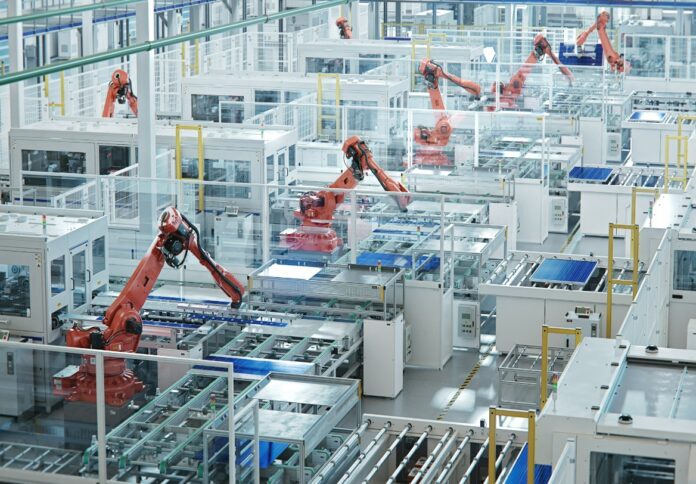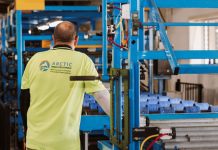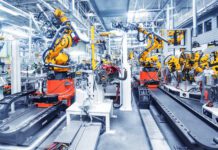
Article by Tania Evans, Founder of WorkPro
The manufacturing industry is no stranger to change. Automation, smarter systems, and new ways of working have become part of everyday life on the factory floor.
But while the work has moved forward, hiring practices often stay the same. And that’s a big part of why the industry is now facing a widening skills gap.
That means a lot of capable people are being overlooked. They might not have worked in manufacturing before, but they know how to follow process, learn fast, and work safely. In many cases, that’s exactly what the job needs.
If the work has changed, maybe it’s time for hiring to change too.
Machines still need people, not just to operate them, but to keep things running smoothly, solve problems as they arise, and maintain safety standards. Today’s manufacturing roles are less about repetitive manual tasks and more about navigating digital systems, thinking critically, and adapting to new processes.
For instance, workers from logistics, construction, mining, utilities, and transportation are already used to navigating complex systems, following strict safety processes, and working with machinery or technical equipment. Often they are required to monitor performance, respond to unexpected issues, and follow detailed procedures, all of which reflect what is needed on a modern factory floor.
They are also familiar with shift work, physical tasks, and delivery-focused environments, which makes them well-prepared for the demands of manufacturing. These are not soft skills or nice-to-haves. They are practical, job-ready capabilities that help maintain quality, safety, and efficiency which is mainly what manufacturers rely on.
By opening up hiring to include people from these sectors, manufacturers have a chance to tap into a wider talent pool that is already equipped with the mindset and hands-on experience to succeed in a production setting. With the right onboarding, these workers can step into roles that might otherwise go unfilled and stay long enough to grow with the business.
According to a recent national WorkPro survey of over 2,400 job seekers, 59.4% had been hired into roles they weren’t formally qualified for and went on to succeed by learning quickly and adapting. In manufacturing specifically, 77% of candidates said they are ‘always’ asked about their skills during the hiring process – higher than in most other industries – yet only 38.5% felt those skills were consistently evaluated over qualifications. That means conversations are happening, but not necessarily translating into action.
The cost of a bad hire in manufacturing is steep, when you consider onboarding, downtime, and re-hiring – with the cost of replacing a skilled frontline manufacturing worker between $25,000 to $40,000 per hire. The industry can’t afford to keep recycling the same small talent pool when thousands of jobseekers with relevant, adaptable skills are standing right outside the industry’s door.
This is where skills-based hiring comes in. At its core, it means identifying the capabilities required for a role, then assessing candidates based on those skills, rather than on arbitrary checkboxes like years of experience or specific past employers.
At WorkPro, we’ve seen first-hand how this approach can help employers shift focus from ticking boxes to understanding what someone can actually do. Our platform integrates a candidate’s work history and skills with qualifications, background checks and training in one place, making it easier to assess people based on a complete employment profile than just their job history.
Of course, this shift isn’t just about process, it’s also about mindset. Many teams default to ‘safe’ hires: people who’ve done the same job, in the same industry, for years. But that strategy no longer aligns with what the industry needs.
To truly embrace skills-based hiring, businesses need to challenge assumptions about what makes someone qualified. They also need to empower employees to mentor new recruits from other industries and create a culture that celebrates successful hires from non-traditional paths.
Sometimes, small changes can make a big difference. It might be rewriting a job ad so it focuses on what the role actually needs, not just a list of past experience. It could mean adding a short task to the interview process to see how someone thinks and works, instead of relying only on a resume. And it might be supporting hiring teams to recognise potential, even if it comes in a different shape than they are used to.
This kind of shift doesn’t need to happen all at once. Starting with just one or two roles is often enough to see what’s possible. When businesses take that first step, they often find more candidates, faster hiring, and better outcomes. People stay longer because they were hired for the right reasons.
Skills-based hiring is about focusing on what matters and making sure good people don’t get missed just because they haven’t followed a traditional path.
The good news? The talent is out there. Motivated, capable people who are ready to work. You just might not find them in the same places you used to.
It’s time to give those CVs another look.
The content of this article is based on information supplied by the author. Please consult a licensed and/or registered professional in this area before making any decisions based on the content of this article.


















